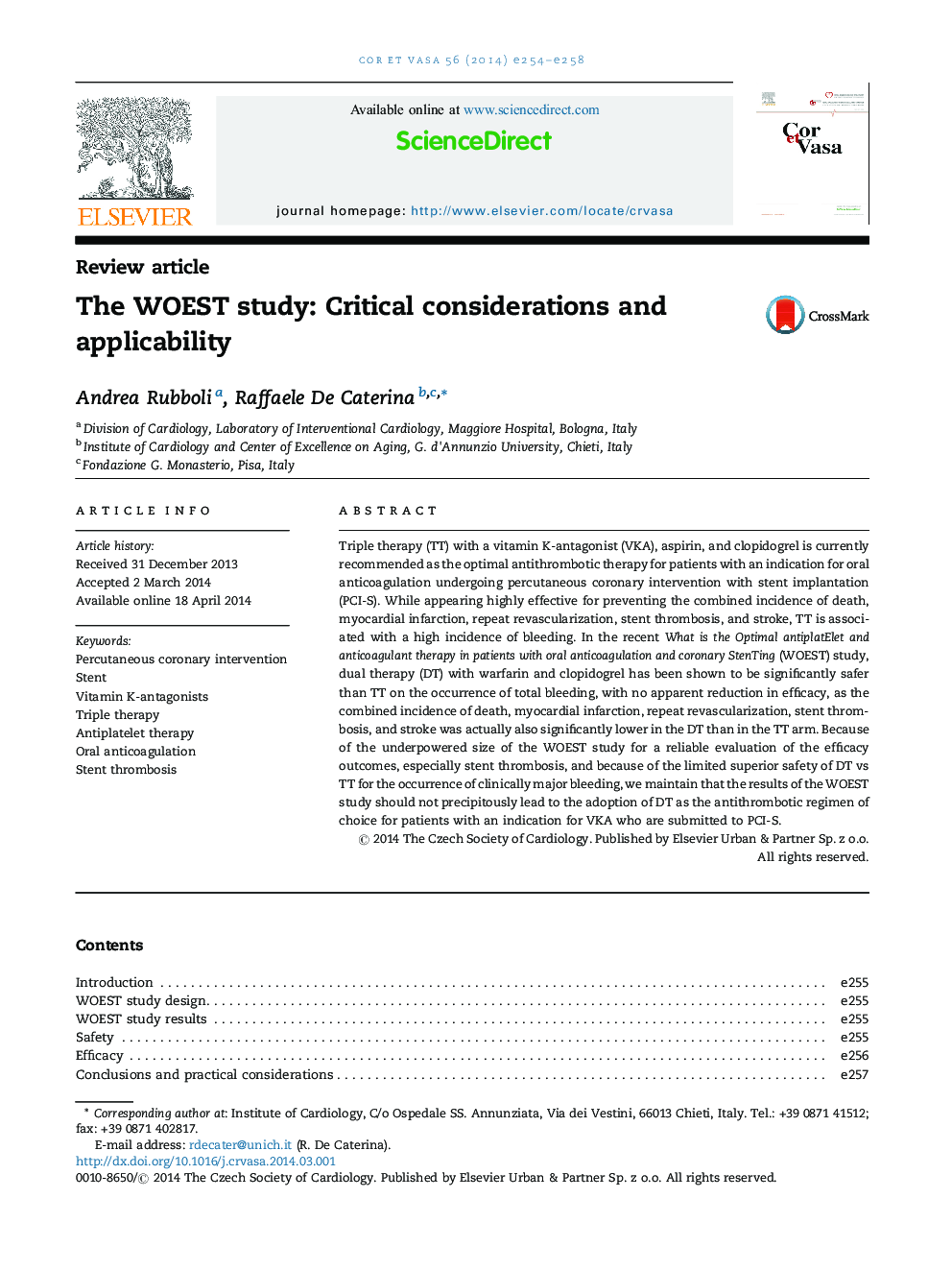| Article ID | Journal | Published Year | Pages | File Type |
|---|---|---|---|---|
| 5877452 | Cor et Vasa | 2014 | 5 Pages |
Triple therapy (TT) with a vitamin K-antagonist (VKA), aspirin, and clopidogrel is currently recommended as the optimal antithrombotic therapy for patients with an indication for oral anticoagulation undergoing percutaneous coronary intervention with stent implantation (PCI-S). While appearing highly effective for preventing the combined incidence of death, myocardial infarction, repeat revascularization, stent thrombosis, and stroke, TT is associated with a high incidence of bleeding. In the recent What is the Optimal antiplatElet and anticoagulant therapy in patients with oral anticoagulation and coronary StenTing (WOEST) study, dual therapy (DT) with warfarin and clopidogrel has been shown to be significantly safer than TT on the occurrence of total bleeding, with no apparent reduction in efficacy, as the combined incidence of death, myocardial infarction, repeat revascularization, stent thrombosis, and stroke was actually also significantly lower in the DT than in the TT arm. Because of the underpowered size of the WOEST study for a reliable evaluation of the efficacy outcomes, especially stent thrombosis, and because of the limited superior safety of DT vs TT for the occurrence of clinically major bleeding, we maintain that the results of the WOEST study should not precipitously lead to the adoption of DT as the antithrombotic regimen of choice for patients with an indication for VKA who are submitted to PCI-S.
